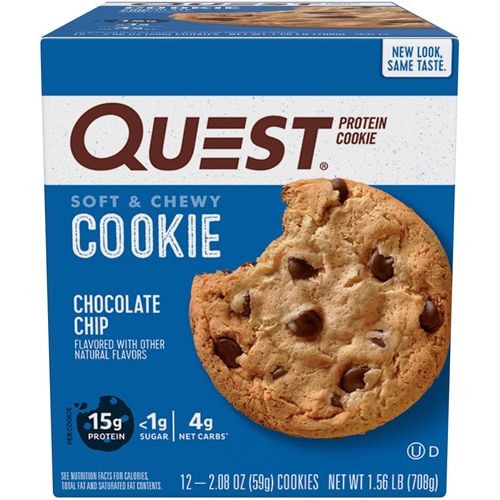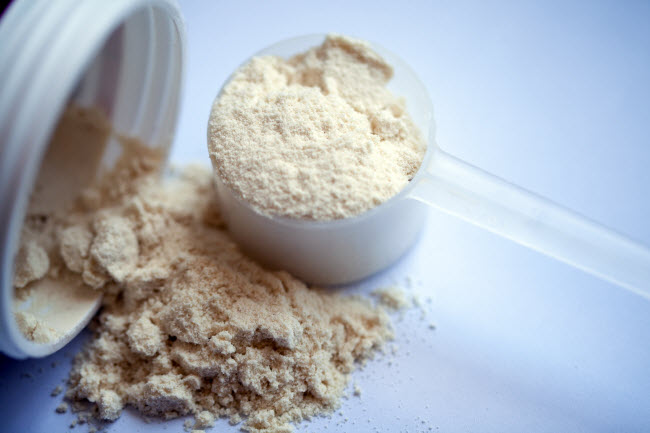Are you getting enough protein? While protein deficiency is rare in the U.S., many people struggle to get the daily recommended amount (remember, men and women have different protein needs). Luckily, there’s no shortage of protein products – from powders and shakes to bars, cookies, crackers and even pretzels – that can help you reach your goal.
If you don’t want to use protein powders or products because you’ve heard they’ll upset your stomach or make you bulk up—stop! Here are eight of the most common myths people believe about supplementing with protein, along with facts to set the record straight.
Myth #1 - You need a protein shake immediately after working out
This is a classic gym myth – that you must consume your protein shake within 30 minutes post workout. If you're a professional athlete you may benefit from chugging a shake within that window; but for the everyday gym goer it's more important to concentrate on overall daily protein intake than timing. Protein goals for women should be from 10 percent to 35 percent of your total daily calories.
Myth #2 - Women will bulk up using protein powder
A daily protein drink won’t give you huge shoulders or oversized arms! It takes a specific weight training program dedicated to build a lot of muscle or to even slightly bulk up. It's way harder than most people think. Simply adding a few whey or plant protein shakes to your diet won’t get you there (but it will help fulfill your daily protein needs!).
Myth #3 - If you’re a runner pass on the protein powder
All athletes can benefit from protein powder – especially runners. Long runs break down muscle fibers (which need to be repaired) as well as help to build slow twitch muscle fibers. Runners need protein to restore and repair muscles, so drinking an extra shake daily ensures they’re getting enough.
Myth #4 - Protein powder is very expensive
This myth is only true if you buy a big tub of protein powder and never use it. Quality protein powder can start around $25 and run as high as $100 per container. While this may seem expensive, it’s actually less expensive per serving compared to eating steak or chicken breasts. Spending part of your food budget on protein powder is totally worth it!
Myth #5 - Protein shakes are high in calories
Depending on the type of protein you buy and the extras you add to your shake, this myth can have a little truth to it. Some protein powders have up to 600 calories and 16 grams of fat per serving. These powders, however, are intended for people looking to gain weight. Adding large amounts of peanut butter, milk, oatmeal, yogurt and fruit could potentially boost your shake to 1,000 calories or more. As is, most protein powders average about 120 calories per serving. Be conservative with add-ins and you can create a great-tasting, nutritious shake that’s under 200 calories.
Myth #6 - A person can only absorb 30 grams of protein at a time
This belief is often been debated in the fitness industry. Think about it:does a linebacker and a ballet dancer absorb and process protein the same way? Probably not. Like many other factors, individual body compositions and metabolisms affect how different bodies digest and process nutrients. If you eat more protein, it's just going to take longer to digest and be used by the body (it won’t go to waste).
Myth #7 - Pea or plant protein isn’t as good as whey protein
Say protein powder and people think whey is the best or only option. Whey protein is good for muscle recovery, and it’s easy to digest for some people. But it’s not always the best protein powder choice for everyone. For vegans and people with digestive issues, a plant-based protein powder is definitely the way to go. Plant-based or pea protein is digested differently than whey but still gives you the benefits of traditional powdered protein.
Myth #8 - Protein powder equals gas
If you drink protein shakes, and nothing else, all day, this may be an issue, since many protein powders are derived from dairy (usually casein and whey). But eating a balanced diet including healthy fats and carbohydrates – and water to hydrate – should take care of unpleasant digestive issues.




